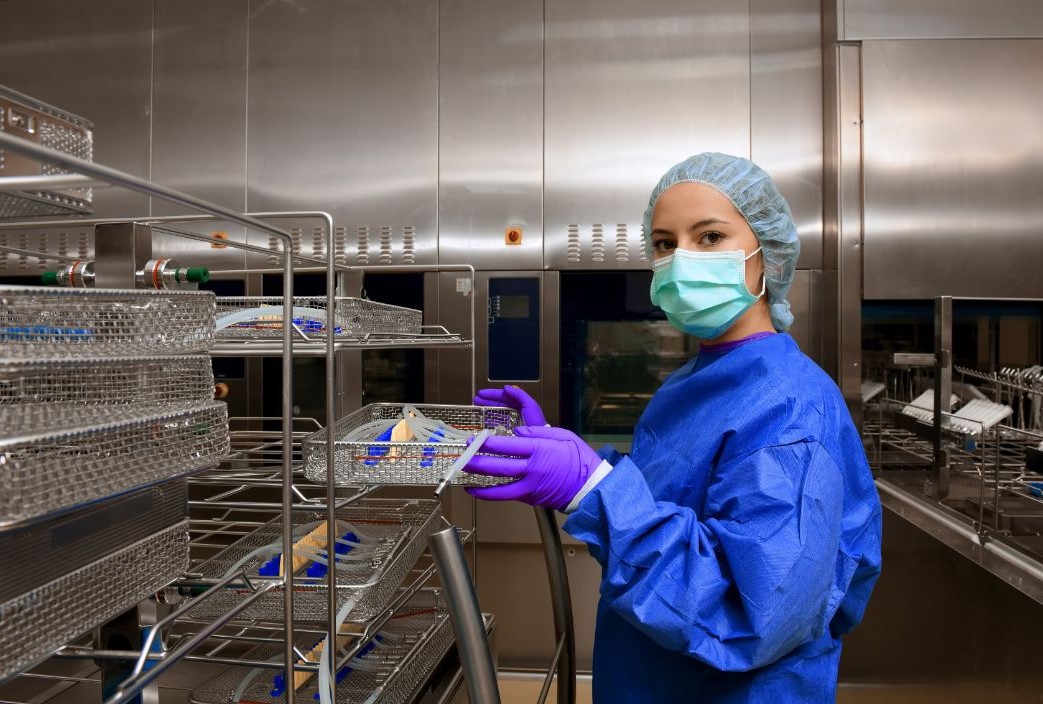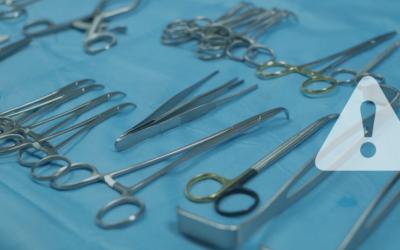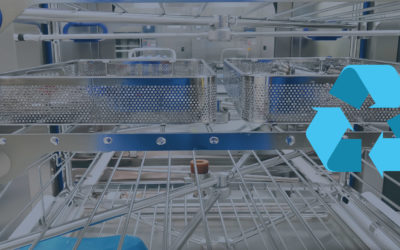The Central Sterile Supply Department (CSSD) of a hospital is one of the most expensive areas to build and refurbish. You may have already discovered that the capital equipment and the difficulty of getting utilities into the area creates an expense that hospitals must pay to keep up with changing standards.
Overseas, many Health Service Organisations (HSOs) are outsourcing the reprocessing of medical devices to companies that pick up the devices for reprocessing and then deliver the sterile instruments for reuse. This model is now available in Australia by locally owned Sterequip and it offers a number of opportunities for your hospital and policy makers to meet the new AS/NZS 4187:2014.
Reprocessing Models
Hospitals in the United States and Western Europe are increasingly outsourcing CSSD management. It’s estimated that 45 percent of healthcare centres in the UK, UK, Italy, France, and Germany will choose outsourced reprocessing solutions by 2022.
Additionally, the 2002 Healthcare Business Market Research Handbook estimated that one in eight hospitals in the US was outsourcing some part of its sterile processing operations.
Until recently, reprocessing models were limited in Australia and confined to:
• Providing temporary CSSDs as a mobile unit
• Providing staff to run necessary equipment in the hospital
However, the need for compliance with changing standards and for specialised management of surgical instruments has revealed that these models aren’t enough for modern health care.
Problems with Hospital CSSDs
There are several problems you can experience with a hospital managed CSSD including:
Cost-Effectiveness
Calculating the cost of an in-house CSSD is difficult due to the multiple inputs that aren’t normally itemised for CSSD use. The true cost of a CSSD includes several associated expenses including:
• Management wages
• Office overheads such as water, rent and power
• Labour and continuous training
• Regular maintenance
• Asset depreciation
• Packaging costs, such as blue wrap
• Daily test cycles
The new standard means many HSOs will need to consider additional costs for:
• New utility expenses from water treatment, air filtration and higher power demands
• New traceability tracking and monitoring requirements
Some of these expenses involve large capital outlay and other ongoing costs that are likely to not be accounted for. Outsourcing is an obvious opportunity to increase the cost effectiveness of the HSO without a big capital outlay.

Changing Infection Control Standards
Infection control standards can and do change, and hospitals and medical staff must be compliant with all changes. This creates the need for ongoing staff education and changes and refurbishments in the CSSD itself. This especially applies with the standard AS/NZS 4187:2014 in health service organisations.
These constant changes put your HSO at risk of non-compliance and can threaten patient outcomes.
Surgical Instrument Management
Surgical devices are complex and delicate instruments. In a controlled environment such as an outsourced CSSD, every instrument is treated with care and attention during reprocessing.
When reprocessing is handled on-site, theatre schedules and time demands on CSSD staff can lead to the mismanagement of your instruments. As a result, HSOs may have to replace damaged devices as well as how incorrect processes could have affected patient outcomes.
Companies that perform outsourced reprocessing like Sterequip are specialists in the management of these tools. They work directly with manufacturers to ensure they follow the manufacturers reprocessing guidelines with complete traceability to minimise risks and mistakes during reprocessing.
Space Allowances
Your hospital’s CSSD is normally located near theatres. This takes up valuable space that could be converted to income producing theatres.
The new AS/NZS 4187:2014 standard may also mean that your hospital needs to find more space for extra equipment that’s necessary for compliance. Many HSOs may not have the available space near the theatres, demanding extensive refurbishments and disruptions to workflow.
HSOs should consider the long-term requirements of their facilities when allocating CSSD space. Over investment can be detrimental due to the high costs of equipment. However, many facilities will require higher capacity in the future, leading to extensive and expensive redevelopment and additional equipment.
Outsourcing your CSSD, either in its entirety or for additional capacity, negates this problem in the long and short term.
The Benefits of Outsourcing Reprocessing
Migrating your CSSD to outsourced reprocessing service can have a number of benefits including:
Compliance
With expert outsourced reprocessing services, your hospital can be compliant by the December 23rd, 2023 deadline without investing a lot of capital or disrupting workflows in a major way.
More Theatres
CSSDs are estimated to be the highest cost areas of a hospital. They’re also located near theatres, which offers the opportunity to convert CSSD spaces into income generating theatres for greater returns. When you use an outsourced solution, you will still require a washing facility to remove the gross soil and sharps before reprocessing. However, this will take up a much smaller area and demand a lower outlay to set up and run.
No Equipment Outlay
To be compliant with AS/NZS 4187:2014 most HSOs will have to invest in new equipment. This new equipment can include washers and sterilisers, air flow and filters, as well as equipment for water quality such as reverse osmosis treatment.
Outsourcing your reprocessing to Sterequip means you can save the capital expense associated with buying this equipment and better utilise these funds for growth or development.
Minimal Staff Disruption
Staff in CSSD can be extremely busy and under time constraints regularly. Sterequip’s system is designed to create the least disruption to current workflows and to free up staff capacity. This allows staff to focus on patient care.
Access to Devices
Sterequip also offers an additional benefit by investing in medical devices. So, when your HSOs decides to work with Sterequip they have the option to use these devices. Sterequip offers two usage options for these devices so that HSOs can choose which is right for their facility.
Cost-Effective Compliance with Sterequip
Hospital CSSDs demand considerable outlay in terms of capital, human labour, and space, especially in light of the December 23rd, 2023 deadline for the new standard AS/NZS 4187:2014. This demand can be lowered significantly with Sterequip, the specialists in sterilisation and reprocessing with cost-effective outsourced reprocessing to suit any size HSO.
Learn more about Sterequip’s services here.


